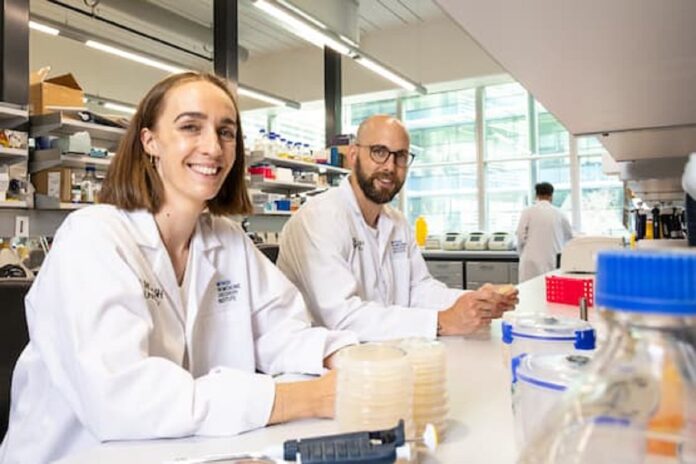Scientists have identified an enzyme from soil bacteria that can turn air into electricity. They believe it might be transformed into a renewable power source for small devices.
The Monash University study, published in the peer-reviewed magazine Nature, demonstrates that the enzyme “Huc” can convert small amounts of hydrogen in the air into an electrical current. An enzyme is a protein that can accelerate chemical reactions in cells.
Huc is a “natural battery” made up of an enzyme that consumes hydrogen in the air, and their discovery has the potential to be a low-cost power source for small objects.
Co-lead researcher Rhys Grinter said, “We’ve shown that when we isolate [Huc] in the lab, we can put that into an electrical circuit, and it produces electricity.”
Due to the insufficient quantities of hydrogen in the air, just 0.00005 percent. He suggested that this method could only be used to power very small devices.
An external hydrogen source would be required to add electrical power to more important things.
Dr. Grinter said, “We’re looking at very small things like a biometric monitor or an environmental sensor that would need sustained levels of power. However, giving our enzyme more hydrogen will make more power.”
He also said, “In something like a fuel cell, it could produce enough power to power a wristwatch or a smartphone.”
The researcher said, “The dream would be to develop a power source that doesn’t require much to keep it going and “basically passively powers itself from the air.”
According to a hydrogen energy expert, powering small devices has a “big reach.”
Robert Willows, a professor at Macquarie University and the owner of a new hydrogen energy startup, said Monash researchers had achieved a breakthrough discovery by getting an enzyme to produce power from hydrogen.
However, he believes that generating power from thin air is “overblown.”
The hydrogen energy expert stated, “That’s a really big reach.”
He said, “They’re proposing it could be used to generate electricity from the air. That’s a very long bow to draw. There is not enough hydrogen in the air to generate electricity.”
He added, “That might be feasible for something with extremely low current requirements, but for something like a wristwatch, that’s never going to work.”
The main component of the scientific findings, which Professor Willows completely supports, is that the scientists were able to generate electricity in the presence of oxygen.
Bacteria that produce hydrogen are usually excessively sensitive to oxygen.
He said, “This work gives an idea of how to make these enzymes insensitive to oxygen.”
As a low-cost energy source for smart devices, technology has the potential to transform daily living.
Professor Fuhrer said, “Think about a sensor stuck to the side of your milk jug in your fridge but tells Alexa or any smart device that your milk has gone off and that you need to buy another one when you go to the grocery store.”
If you can make that for 5 cents, it’s probably worth it. This is sometimes referred to as the Internet of Things because we want everything to be connected to the Internet.
Professor Fuhrer said the latest research was new to him, but extracting very small amounts of energy from the environment was an active study area.
He said, “It’s a first step, and it sounds exciting.”
Journal Reference:
- Grinter, R., Kropp, A., et al. Structural basis for bacterial energy extraction from atmospheric hydrogen. Nature. DOI: 10.1038/s41586-023-05781-7
